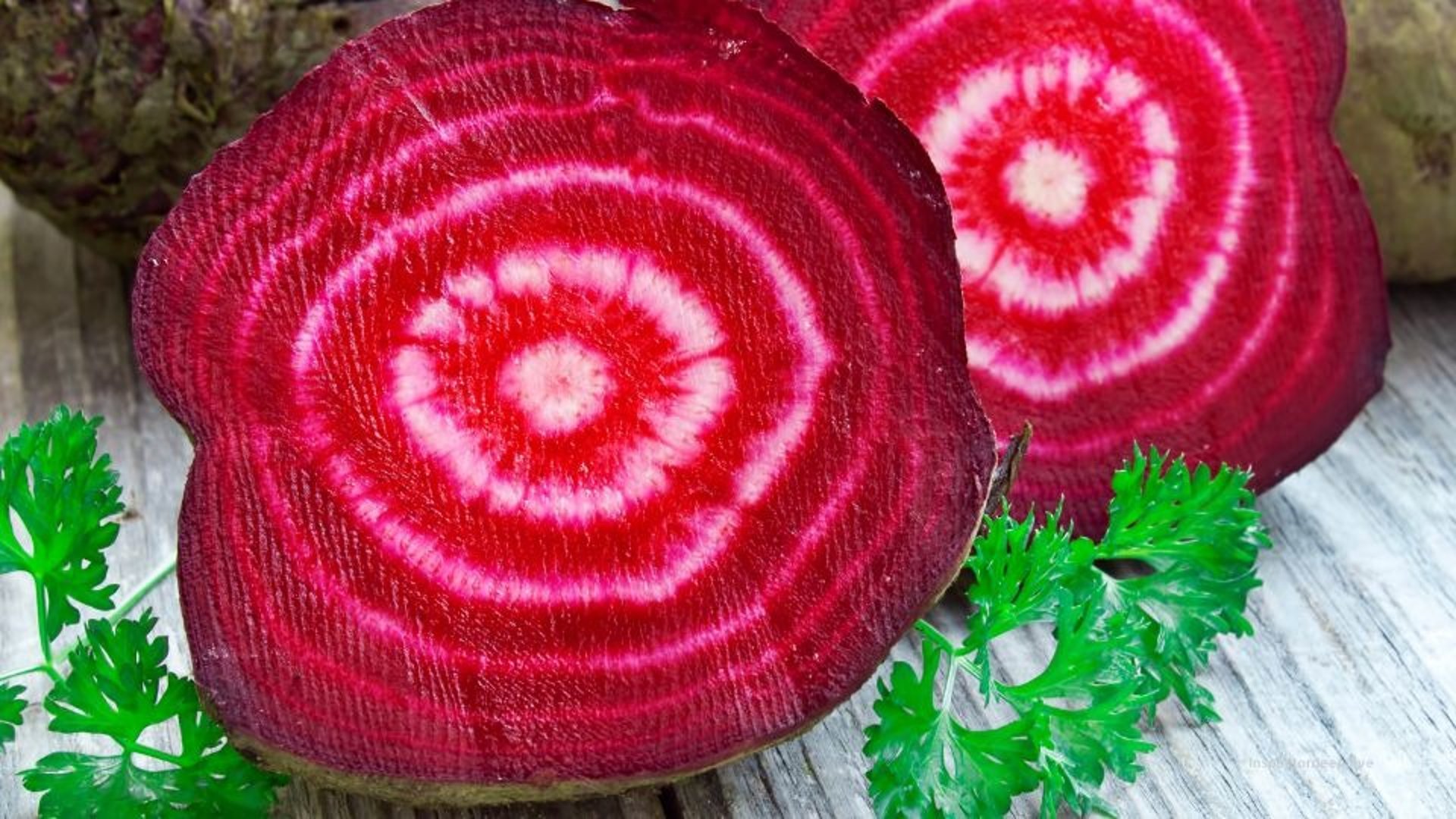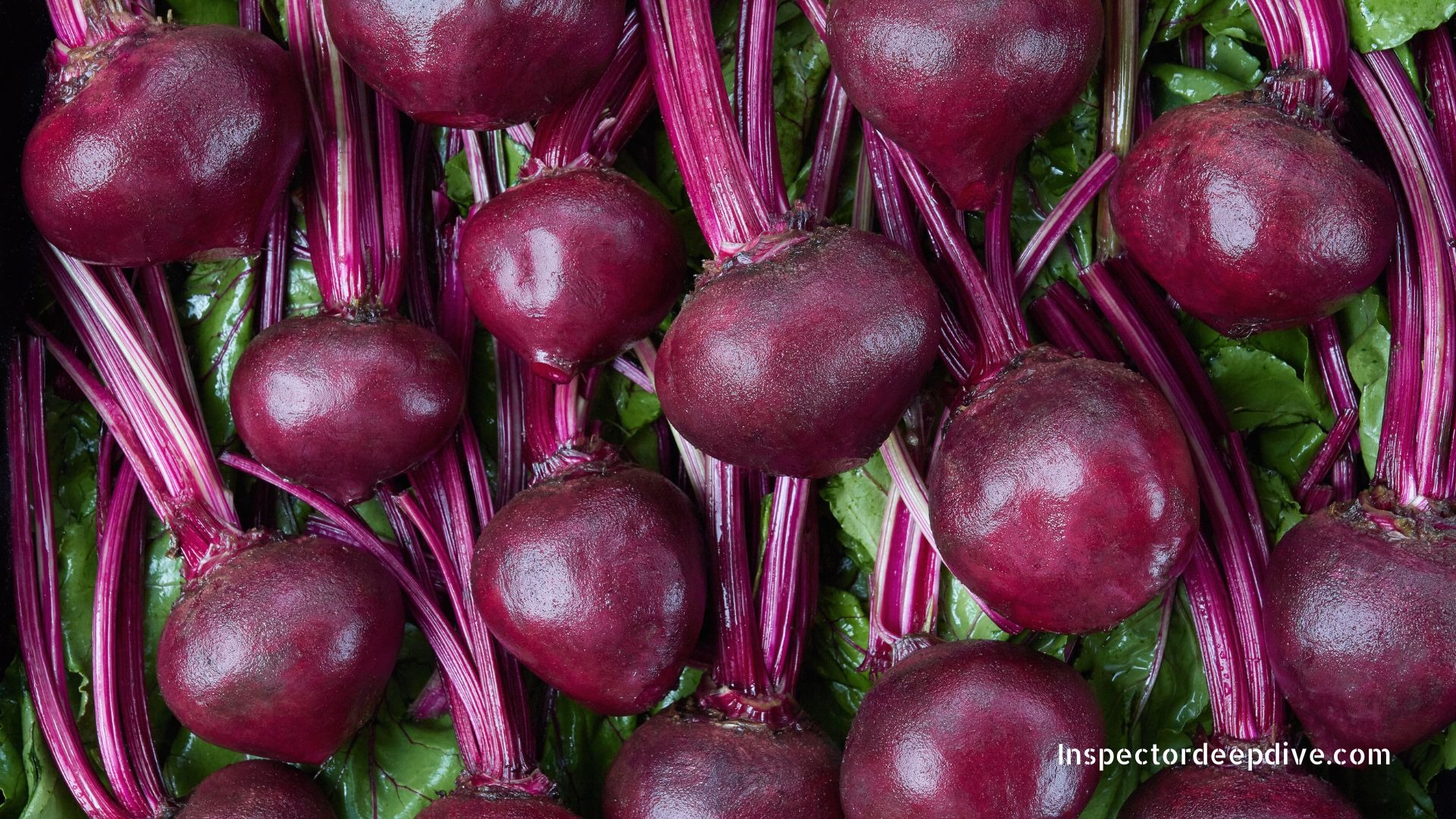
Superfood Spotlight: Discover the Amazing Benefits of Beets

Scientific Name: Beta vulgaris
What Is Beetroot?
Beetroot, commonly known as beets, is a vibrant root vegetable famous for its deep red-purple color and earthy flavor. It's a versatile vegetable enjoyed raw, cooked, or juiced, and is highly valued for its dense nutritional content and wide range of culinary uses.
Origin and Cultivation
Beetroot originated in the Mediterranean region, where it was initially cultivated for its edible leaves before its roots gained popularity. Today, it's grown globally, with major producers including the United States, Russia, France, and Poland. Beetroot thrives in temperate climates and is harvested year-round in many areas.
Seasonality & Availability
While beetroot's peak season is typically autumn and winter in temperate climates, it's available year-round in various forms, including canned, pickled, or frozen. When choosing fresh beetroot, look for firm, smooth roots with a vibrant color, and avoid any that are soft or wrinkled.
Benefits of Beetroot
Beetroot is packed with beneficial compounds:
Blood Pressure Support: Rich in nitrates, which can help improve blood flow and lower blood pressure.
Anti-inflammatory Power: Contains betalains, powerful antioxidants that reduce inflammation and protect cells from damage.
Liver Health: Compounds like betaine support liver detoxification.
Digestive Health: High in fiber, promoting a healthy gut and regular bowel movements.
Athletic Performance: Its nitrate content may enhance endurance and stamina.
Nutritional Breakdown (per 100g raw)
Vitamins:
Vitamin C: 4.9 mg – boosts immunity and supports skin health.
Folate: 109 µg – essential for cell division and crucial during pregnancy.
Vitamin B6: 0.07 mg – aids in brain development and function.
Riboflavin (B2): 0.04 mg – supports energy production and cellular health.
Minerals:
Potassium: 325 mg – regulates fluid balance and supports heart health.
Magnesium: 23 mg – involved in muscle and nerve function.
Iron: 0.8 mg – aids oxygen transport (plant-based iron is less easily absorbed).
Manganese: 0.33 mg – plays a role in bone development and metabolism.
Copper: 0.08 mg – supports iron absorption and connective tissue health.
Zinc: 0.35 mg – supports immune function and wound healing.
Macronutrients:
Water: 87.6 g – keeps you hydrated and supports cellular function.
Energy: 43 kcal – low-calorie, ideal for light meals or snacks.
Protein: 1.6 g – provides essential amino acids for muscle repair.
Total Fat: 0.2 g – mostly unsaturated fats, minimal contribution to daily intake.
Carbohydrates: 9.6 g – includes natural sugars and dietary fiber.
Dietary Fiber: 2.8 g – promotes digestive health and satiety.
Sugars: 6.8 g – naturally occurring sugars like glucose and fructose.
Surprising Truths About Beetroot
The vibrant red pigment, betalains, is a natural food dye.
Beet greens (leaves) are edible and highly nutritious, though often discarded.
Historically, beets were considered an aphrodisiac due to their boron content.
Despite their natural sweetness, beets have a low glycemic index.
Best Time to Eat Beetroot
Before workouts: To enhance endurance and stamina due to its nitrate content.
In autumn and winter: When fresh beets are in peak season.
As part of a balanced meal: To support digestion and nutrient absorption.
How Beetroot Affects Your Body
The nitrates in beetroot improve blood flow and oxygen delivery to muscles. Betalains reduce inflammation and protect cells from damage. Its fiber supports beneficial gut bacteria and helps prevent constipation. The antioxidants in beetroot also contribute to long-term heart and brain health.
Best Ways to Use Beetroot
Roast or boil for a sweet, earthy flavor.
Blend into smoothies for added nutrients and color.
Use in salads for a crunchy texture.
Juice for a concentrated source of nitrates.
Pickle for a tangy, shelf-stable snack.
Who Should Be Cautious?
People with kidney stones or high oxalate sensitivity.
Individuals taking blood pressure medications should consult a doctor due to nitrate content.
Those prone to gastrointestinal discomfort from high-fiber foods.
The Science Behind Beetroot
Nitrates in beetroot convert to nitric oxide in the body, which improves blood flow and cardiovascular health. Betalains exhibit strong antioxidant and anti-inflammatory properties. Betaine supports liver detoxification and helps reduce homocysteine levels. The inulin found in beetroot promotes a diverse and healthy gut microbiome.
Label Reading Tips (for packaged beetroot products)
When buying pickled beets, look for options with low added sugar and sodium. Always rinse canned beets before use to reduce their salt content. Organic isn't always necessary, as pesticide levels in beets are generally low.
Medication or Supplement Interactions
Beetroot may interact with blood pressure medications due to its nitrate content. It could also affect kidney function in people with pre-existing conditions. Its high fiber content might interfere with nutrient absorption if consumed excessively.
Environmental Impact
Beetroot cultivation requires moderate water use and thrives in cooler climates. Its carbon footprint is generally low due to widespread local production. Consider composting or cooking the leaves and stems, which are often discarded.
Chef or Culinary Tips
Don't discard the greens sauté or blend them like spinach for extra nutrition. Use lemon juice to balance the earthy flavor of beets. Pair with creamy sauces or cheeses to enhance their taste. Avoid overcooking; aim for a tender but firm texture.
Storage & Shelf Life
Fresh beets: Store in the fridge for up to 2 weeks; remove the greens to extend their life.
Cooked beets: Last 3–5 days refrigerated.
Frozen or pickled beets: Can be stored for up to 6 months.
Recipes or Meal Ideas
Roasted beetroot with balsamic glaze and goat cheese.
Beetroot hummus with tahini and garlic.
Beetroot and ginger smoothie for an energy boost.
Pickled beets with red onions.
Beetroot soup (borscht) with dill and sour cream.
Scientific Breakthroughs As Of 2025
Cognitive Enhancement: Researchers confirmed that beet-derived nitrates enhance brain blood flow in older adults, potentially slowing age-related cognitive decline and improving memory.
Optimized Athletic Performance: New studies showed that beetroot juice supplementation increases athletic performance more effectively when timed with circadian rhythms, optimizing nitric oxide availability during peak activity hours.
Personalized Nutrition: A breakthrough in gut microbiome research revealed that certain individuals have unique gut bacteria that convert beet pigments (betacyanins) into powerful anti-inflammatory compounds, offering personalized nutrition insights.
Anemia Support: Scientists engineered a new beet variety with enhanced iron-like bioactivity, showing promise in supporting red blood cell production in early-stage trials for mild anemia.
Functional Foods: Advances in food science led to the development of beet-based functional foods, including low-sodium beet powders and fermented beet tonics designed to support cardiovascular health without raising oxalate concerns.
FAQs
Can I eat beet greens?
Yes, they are highly nutritious and can be cooked like spinach.
Are beets good for weight loss?
Yes, they are low in calories and high in fiber, which aids in satiety.
Why do beets turn my urine red?
This harmless phenomenon is caused by betalains, the natural pigments in beets.
How do I know if a beet is fresh?
Look for firm, smooth roots with a vibrant color.
Superfood Spotlight: Discover the Amazing Benefits of Beets
info@inspectordeepdive.com
© 2025 food.InspectorDeepDive.com. All rights reserved. Content may not be copied or republished without permission.
This article is for informational purposes only. InspectorDeepDive.com does not provide medical advice. Always consult a licensed healthcare provider before making dietary or health decisions.
